Damascus and Moscow: pragmatism over confrontation Al-Sharaa pledges to honour Russian agreements
Last Wednesday, during his visit to Moscow, Syrian President Ahmed al-Sharaa told Russian President Vladimir Putin that he would honour all previously signed agreements between his country and Moscow. This likely means that Russia’s two main military bases in Syria remain secure.
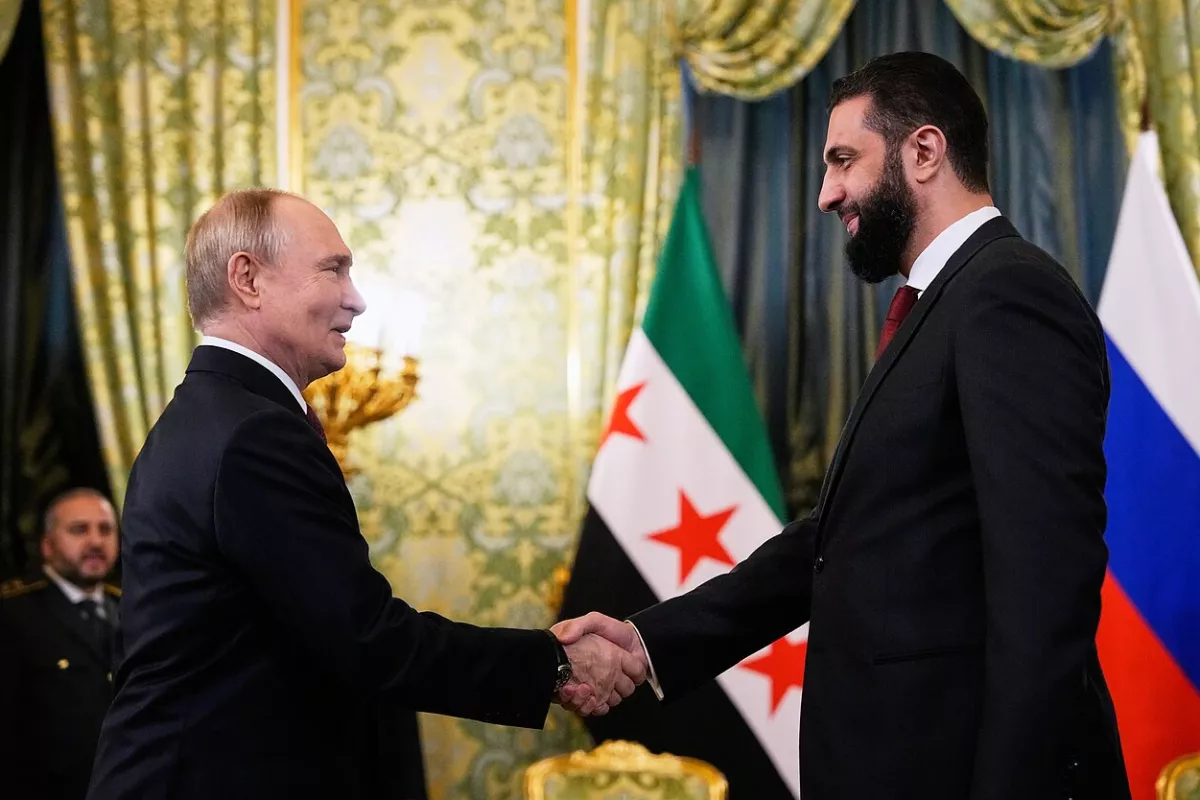
These are the naval base in Tartus and the Khmeimim Air Base in Latakia Province. Russia also maintains a military presence at Qamishli Airport in the country’s northeast, near the Turkish border, though that area is controlled by the Kurdish-led Syrian Democratic Forces (SDF).
Earlier reports claimed that Syria had cancelled its agreement with Russia on modernising the Tartus port and instead reached a deal with the UAE to participate in the project. The Emirates reportedly pledged to invest around $800 million, though this apparently did not affect the Russian base.
In addition, the European Union demanded that Syria’s new government remove Russian military facilities, promising to lift sanctions on the country only if this condition was met. As can be seen, al-Sharaa currently has no intention of doing so.
The visit of Ahmed al-Sharaa to Moscow and the apparent warming of relations between Syria and Russia is a highly delicate process, considering that until December 8 of last year, the two sides had been in a state of armed confrontation. Russia and Iran had provided military support to Bashar al-Assad’s regime in Damascus, while Hayat Tahrir al-Sham (HTS), which became the core of the armed opposition, fought against them.
During a swift offensive that began on November 27, the rebels crushed Assad’s armed forces and captured Damascus on December 8. Iranian troops and their allied militias fled the country. Many at the time expected a large-scale attack on Russian forces, but it never happened. On the contrary, Syria’s new government announced its readiness to discuss the issue of Russia’s military presence in the country. Why did al-Sharaa choose to avoid confrontation with Moscow?
The new Syria and its pragmatic leader
In his youth, Syria’s future leader studied at university, possibly focusing on public relations and media work. It can be assumed that this education helped shape the rapid transformation he underwent after coming to power: he swapped traditional attire for modern European suits and began speaking of tolerance toward all ethno-religious communities living in Syria, as well as of his readiness to cooperate with various actors, including Russia (but not Iran, which had wielded far greater influence in the country thanks to its backing of the Alawite–Shiite minority to which the former president Assad’s family belonged).
However, the matter goes beyond the professional skills of the new Syrian president. His pragmatism and moderate rhetoric stem from a simple fact: the state is in a desperate situation.
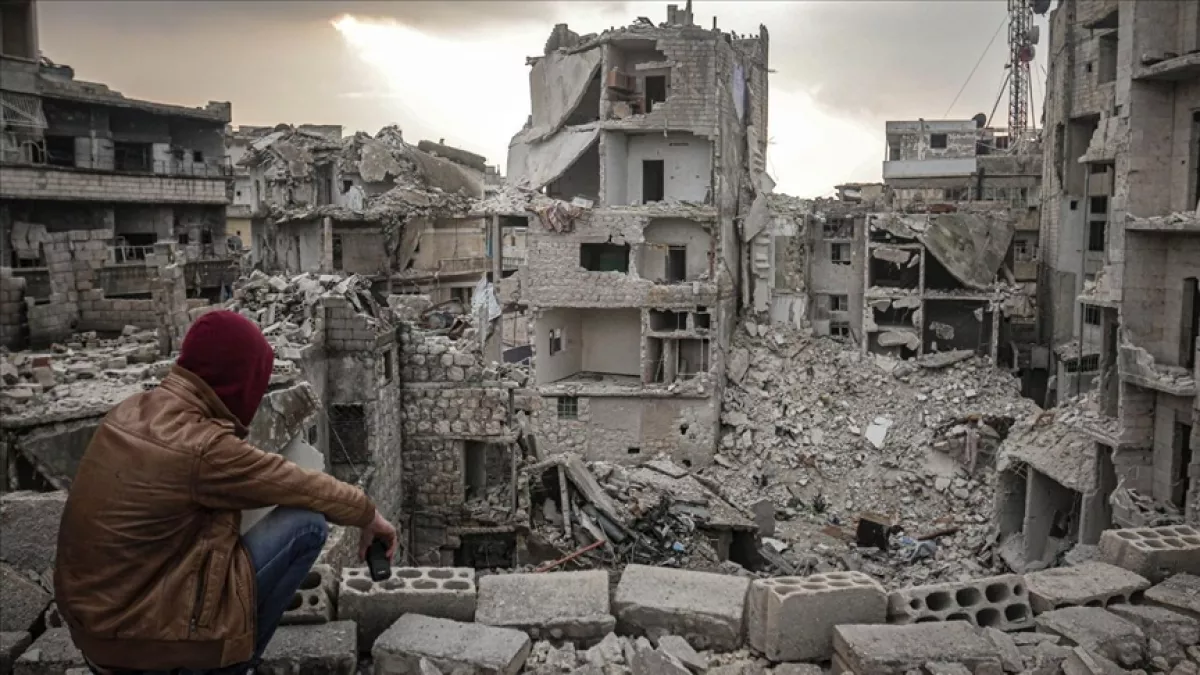
After fourteen years of civil war, much of Syria’s infrastructure lies in ruins. Entire districts have been devastated, and people face acute shortages of food, electricity, water, and medical care. Millions of Syrians, including many skilled professionals, have fled the country. The majority of the population now lives below the poverty line, and the new government sometimes lacks the funds to even pay civil servants’ salaries. Despite assistance from its long-time allies—Türkiye and Qatar—the economic situation remains extremely dire.
The political landscape is no less complex. Around one-third of the country’s territory in the north and east, along with most of its oil fields and the largest power plant on the Euphrates, is controlled by Kurdish armed formations. These forces rely on roughly 70,000 Kurdish fighters trained and equipped by the United States, making their military strength roughly equal to that of the government’s.
Another region — Suwayda (also spelt Sweida), populated by the Druze — is controlled by armed groups independent of Damascus and closely aligned with Israel. With the support of local religious leaders, these groups have formed their own government. Latakia, the Alawite–Shiite stronghold, has also been restless: earlier this spring, government forces suppressed an armed rebellion there.
The government controls only about 60% of Syrian territory, inhabited mainly by Sunni Arabs — and even that control is tenuous. Among the Sunni Bedouins, who number several million, tribal loyalty takes precedence over allegiance to the state. The Bedouin militias alone count roughly 50,000 fighters. In addition, there are the forces of the Syrian National Army (SNA), formed with Turkish support from various anti-Assad factions, whose strength is roughly comparable.
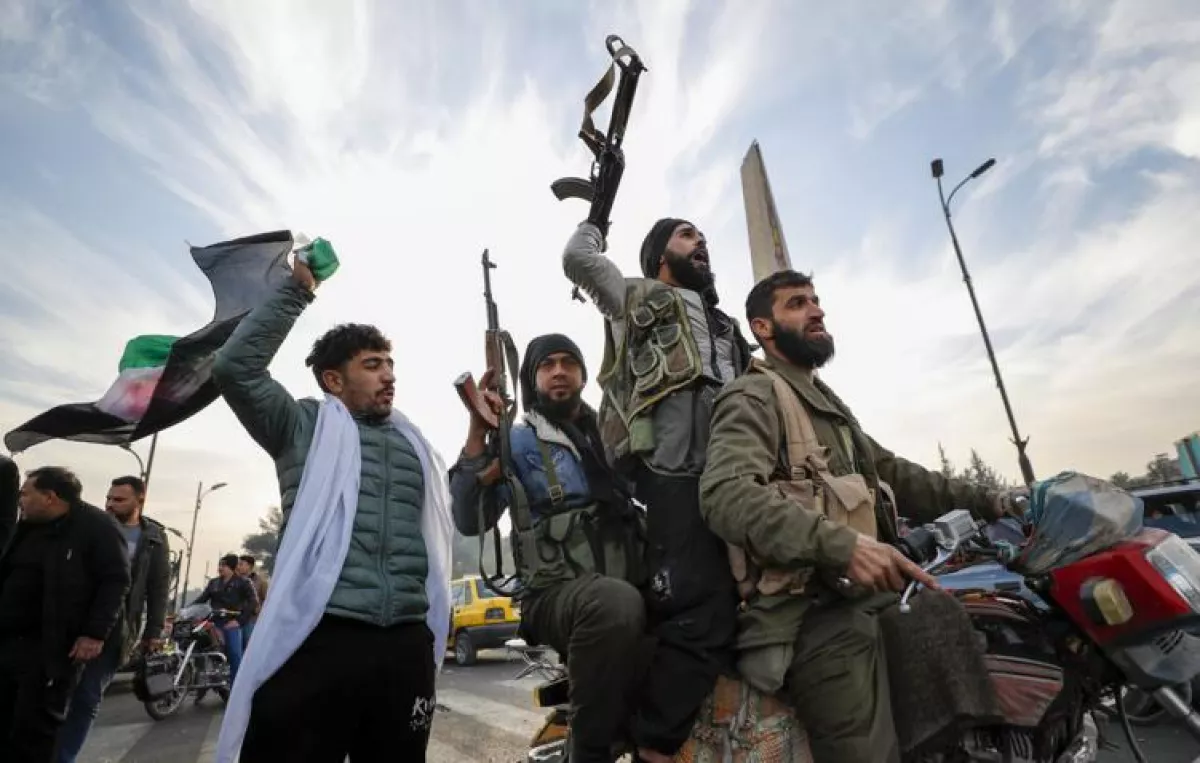
HTS units — the most combat-ready and disciplined — number between 20,000 and 40,000 fighters. Many combatants, particularly from the Syrian National Army (SNA), have joined the new government’s armed forces and Interior Ministry troops, whose core is formed by HTS. However, these newly created brigades remain only loosely controlled by the central authorities, while the Bedouin tribal militias continue to operate independently. Such is the lingering echo of the civil war. The government’s control is fully consolidated only in the capital — Damascus.
When one combines economic collapse with political confusion and the presence of numerous armed factions, the threats facing al-Sharaa’s government become clear. He urgently needs investors willing to pour billions of dollars into rebuilding the economy and infrastructure, as well as assistance in creating a centralised bureaucratic apparatus capable of directing the actions of officials and security forces — and paying their salaries regularly. Otherwise, the country risks plunging back into chaos. For this reason, official Damascus is open to international engagement — it simply has no other choice.
Syrian geopolitics and diplomacy
The new leadership faces another challenge: weakened by war, the country has turned into an arena of rivalry between regional powers — Türkiye and Israel. Ankara is betting on the central government, while Israel supports the federalisation of Syria and the creation of enclaves independent of Damascus, seeking to weaken al-Sharaa’s administration, which maintains close ties with Türkiye.
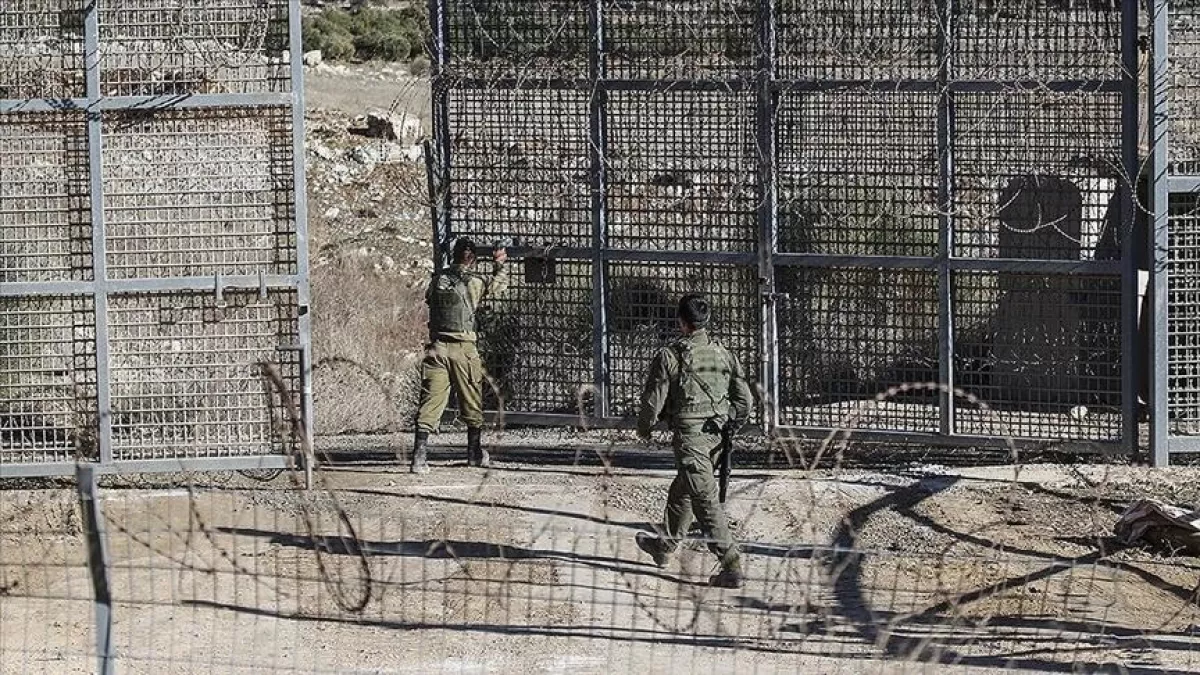
Moreover, Israel has expanded the territory it controls in southern Syria and demanded the demilitarisation of the southern regions to ensure the security of Druze-populated Suwayda. The Israeli Air Force regularly destroys Syrian arms depots. When government forces, supported by Bedouin militias, attempted to take control of Suwayda, the IDF bombed the Syrian army’s general headquarters in Damascus, forcing it to retreat. This situation does not satisfy al-Sharaa — he views the presence of Russian troops as a deterrent against Israel.
In addition, Syria’s leadership does not want to put all its eggs in one basket. The assistance provided by the Turkish–Qatari bloc in rebuilding the country is important, but it also strengthens Ankara’s and Doha’s influence, including their military and economic presence. The authorities in Damascus are therefore seeking to diversify their foreign relations to avoid dependence on a single partner. Hence their interest in Saudi and Emirati investments, as well as in maintaining Russia’s presence. This is the essence of al-Sharaa’s diplomacy.
What Syria wants in exchange for keeping Russian bases
Syria is prepared to allow Russia to keep its military bases but expects significant returns. “We are bound to Russia by bilateral relations and shared interests, and we respect all the agreements concluded with it. We are working on redefining the nature of our relationship with Russia,” al-Sharaa stated.
Russian President Vladimir Putin, for his part, said that Moscow was ready to do everything possible to implement “many interesting and useful initiatives” previously discussed between the two sides.
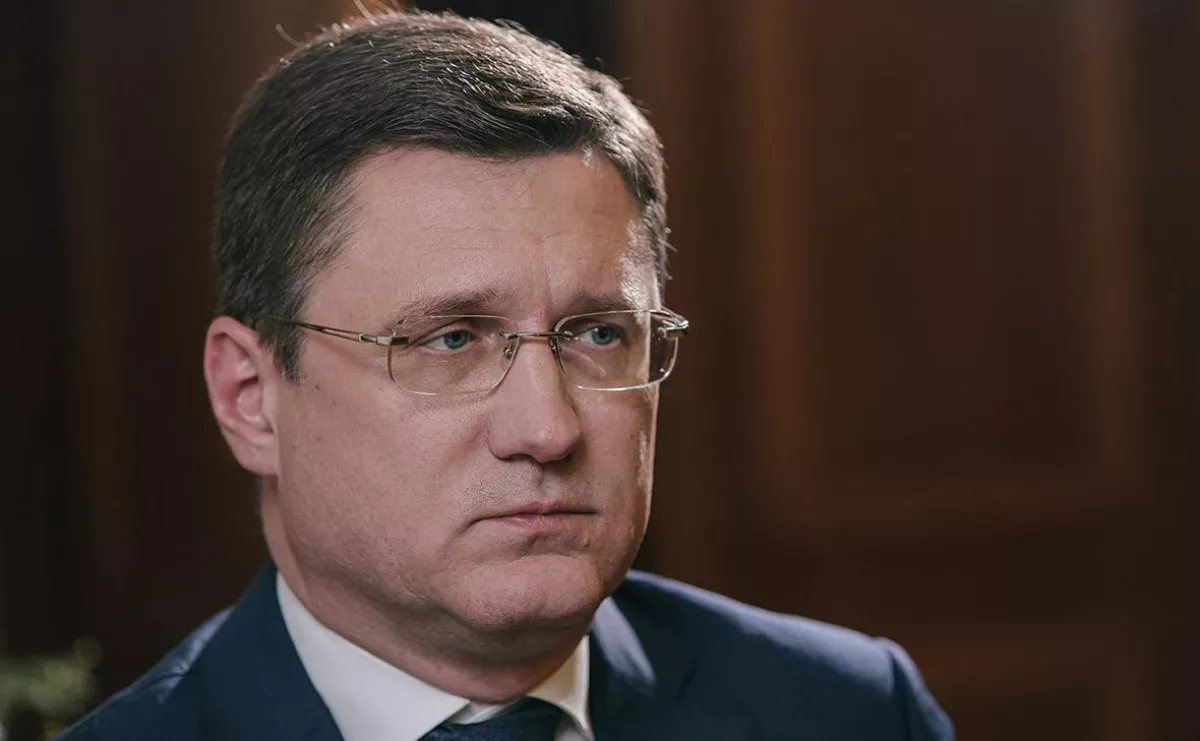
Russian Deputy Prime Minister Alexander Novak told journalists that Moscow is ready to work on oil projects in Syria and assist in restoring the country’s energy, railway, oil, and other infrastructure destroyed during years of war.
According to Russian Foreign Minister Sergey Lavrov, Moscow believes that Damascus is interested in maintaining Russian military bases. For Russia, these bases serve as logistical hubs for delivering humanitarian and technical aid to Africa.
Reuters reports that in exchange for allowing Russia to retain its bases, al-Sharaa hopes to secure economic concessions, including the resumption of wheat supplies on preferential terms — as was the case under Assad. In addition, two Syrian sources told the agency that al-Sharaa intends to demand that Moscow hand over Assad for trial. Naturally, Russia will not agree to this — allies are never handed over, as it is a matter of prestige. Nevertheless, the demand could serve Damascus as a bargaining tool.
Sources from the Lebanese outlet Al-Akhbar claim that Ahmed al-Sharaa has requested not only economic but also military assistance from Russia. Damascus is reportedly interested in acquiring Russian weapons and spare parts for its military equipment.
The Syrian president has insisted on Moscow’s support in resisting Israel’s demands to establish a broader demilitarised zone in the south of the country. Moreover, it is possible that al-Sharaa may even ask Moscow to resume armed patrols in that area.








